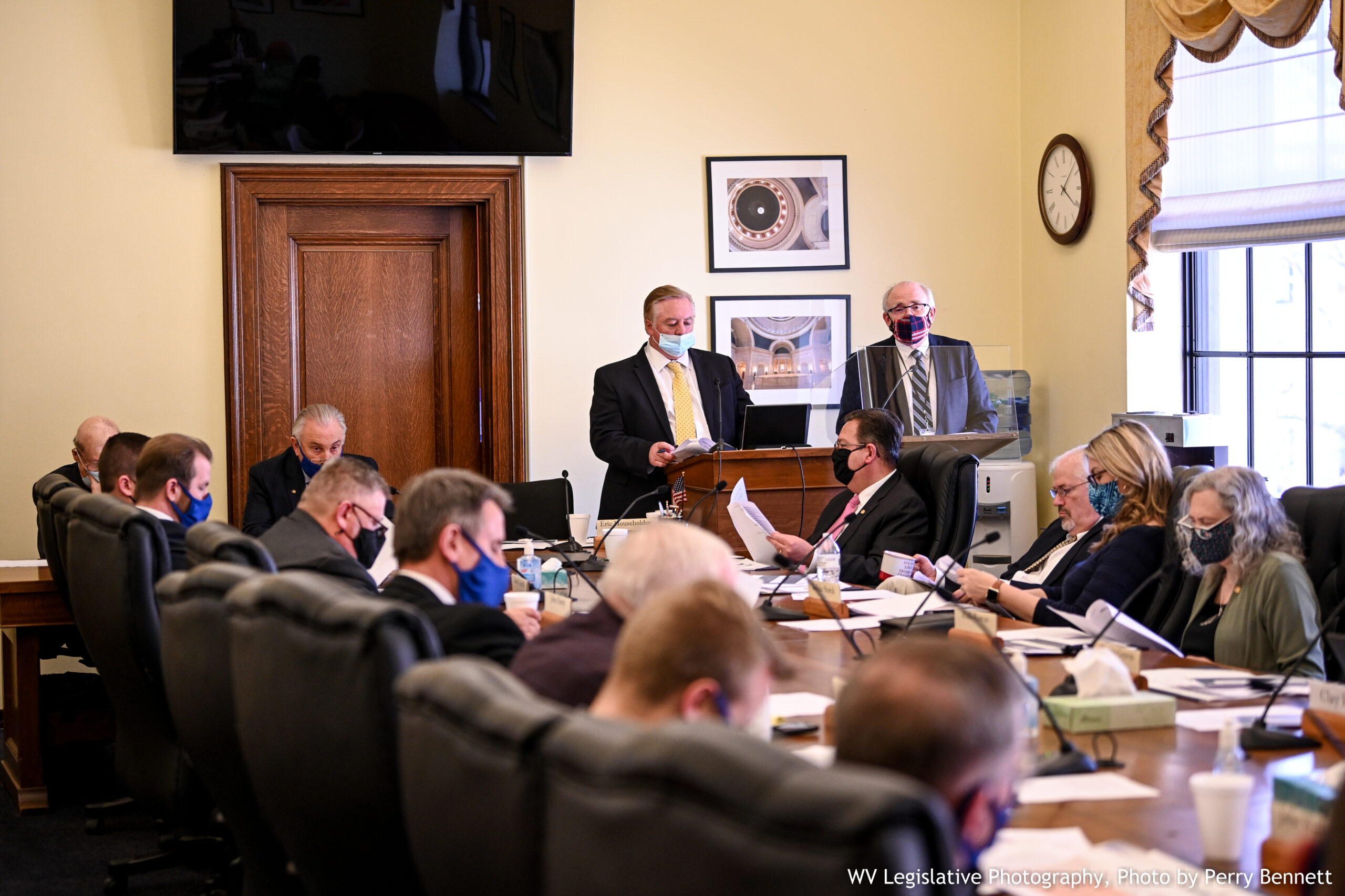MORGANTOWN – While Gov. Jim Justice was pitching his plan to eliminate the state income taxes to businesses across the state Monday afternoon, the House Finance Committee was busy passing an entirely different bill.
Justice’s plan makes up shortfalls generated by cutting the income tax with a variety of tax hikes in other areas. The House Finance plan relies solely on anticipated growth and proposes no new taxes or tax hikes.
The committee took up what’s called an originating bill; it has no number but will get one before it hits the floor.
The House Finance plan would start Jan. 1, 2022. Each income tax bracket would see a tax-rate reduction. At the same time, the state tax commissioner would look tax year 2021 collections and use that figure to reduce tax year 2023 collections by $150 million and calculate tax year 2023 rates accordingly.
That process will continue in subsequent years – calculating new rates for the coming year based on prior-year revenue – until the income tax is phased out.
But the plan also includes an accelerator: The Income Tax Reduction Fund (ITR Fund). Additional revenue for a variety of other taxes would be channeled into the fund, which is intended as a safeguard against economic downturns, according to slides describing the plan.
When the ITR Fund reaches $400 million, $100 million would be transferred into the General Fund. This also triggers a new calculation of the tax-rate reduction. The new calculation would be geared to reduce income tax collections by $250 million instead of $150 million.
Much of the money for the ITR Fund would come from gambling revenue, from expanding Keno and additional limited video lottery machines (slots) at various locations, and from sports wagering and interactive gaming. The fund would also receive $25 million from internet sales from businesses registering to sell online after Jan. 1 of this year.
The fund would also get money from 25% of annual budget surpluses and amounts skimmed from severance taxes; tobacco and vaping taxes; corporate net income, insurance premiums, business and occupation taxes; and special revenue.
Discussion with counsel brought out other information. The plan doesn’t account for possible losses in lean years, that would require future action and possibly reduce the budget. “That could happen if growth is not as robust as one would like,” counsel aid.
And it’s not a bill yet so there’s no fiscal note.
Delegate Larry Rowe, D-Kanawha offered a couple amendments to prioritize income tax cuts and elimination for those earning under $25,000 but both failed.
During bill debate, Delegate Brent Boggs, D-Braxton and the last Democratic Finance chair before the GOP takeover, said, “It’s certainly an interesting proposal.” He’s seen many over the years. “This one is somewhat palatable.”
His big reservation was the lack of a fiscal note and that kept him from embracing the plan, for now. “I want to cut taxes as much as anybody in this room. I have a concern about jumping until there is a net below us.”
Rowe said this plan is better than Justice’s but combined with the Hope Scholarship education savings account plan (another $126.6 million starting in 2026), it could break the budget. “This tax reduction slams us to the wall.”
Delegate Marty Gearheart, R-Mercer, said he’s been waiting for a good tax relief plan for years. “This is a legitimate method of doing it in a prudent manner.” It won’t break the budget or increase taxes. It uses existing revue and keep government confined to its proper role.
The bill passed in a divided voice vote.
The streaming sound system was still on when chair Eric Householder, R-Berkeley, asked who wanted to be a bill sponsor. Rowe said, “Not me.”
Tweet @dbeardtdp Email dbeard@dominionpost.com




